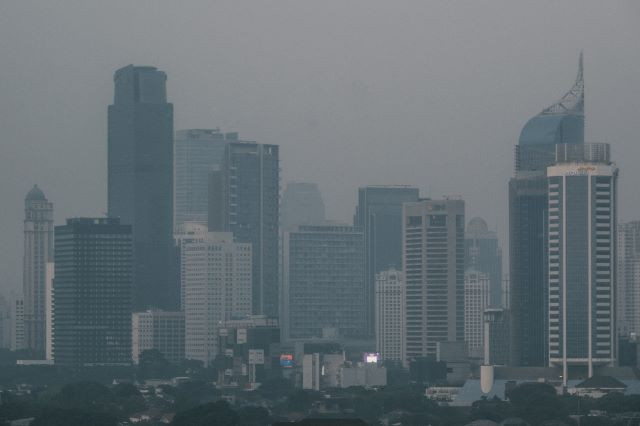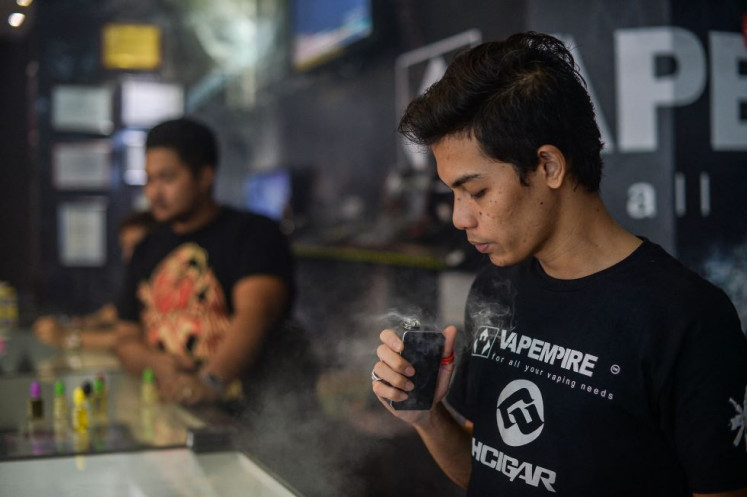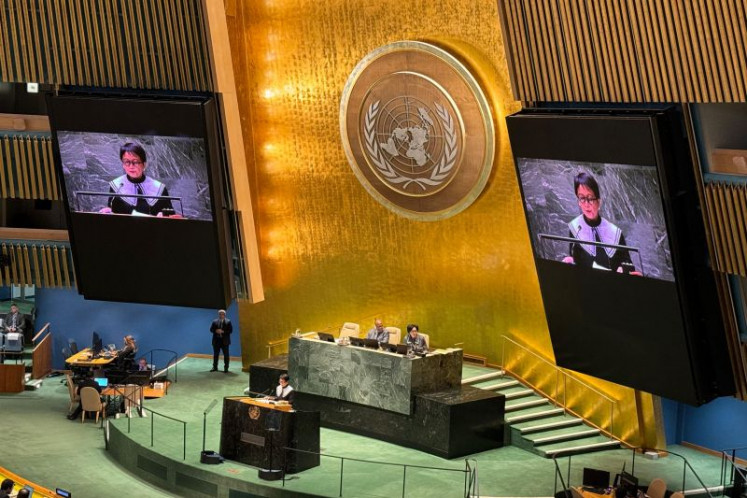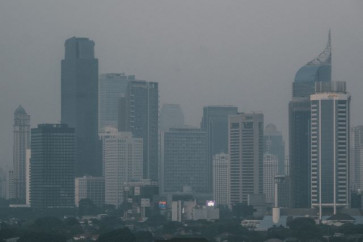A science-driven path forward to navigating Jakarta’s air quality challenge
Jakarta's haze issue offers an opportunity to combine data and methodologies founded in atmospheric chemistry to generate more complete understanding of its causes and hence, develop better guidance to design both measures and policies toward a solution.
Change Size
 Murky grey haze caused by air pollution shrouds the Jakarta skyline on Aug. 23. Thousands of public employees in the capital were ordered to work from home starting on Aug. 21 in a two-month trial aimed at improving the city's air quality.
(AFP/Yasuyoshi Chiba)
Murky grey haze caused by air pollution shrouds the Jakarta skyline on Aug. 23. Thousands of public employees in the capital were ordered to work from home starting on Aug. 21 in a two-month trial aimed at improving the city's air quality.
(AFP/Yasuyoshi Chiba)
J
akarta finds itself grappling with an escalating air pollution crisis, marked by thick haze that has led to the city’s air quality being ranked as the world’s worst. This haze is not exclusive to this year; in fact, four years ago, Jakarta was among the top five most polluted cities worldwide.
Deteriorating air quality translates into visible health implications, respiratory distress and reduced visibility, which warns of an impending public health crisis. As residents bear the brunt of this year’s intensified haze, their voices have prompted a cascade of actions and government policies.
Immediate measures span from remote work for civil servants, misting streets, fines for emissions violations, suspending operations for polluting industries, outdoor mask mandates and promoting public transportation. Long-term strategies have also been proposed, consisting of clean energy, emissions standards, pollution taxes and better law enforcement.
Nonetheless, it's important to steer policymaking with science-driven insights, considering that some well-intentioned measures could prove ineffective in improving air quality. To draft sustainable control strategies, we should first address two critical questions: What lies behind the intensity and persistence of Jakarta’s haze, and why has it been so severe this year?
Uncovering the answer poses a complex challenge, but atmospheric chemistry will help us understand the unique elements at play this year and provide better guidance in our pursuit of cleaner air.
Shifting our focus to similar cases worldwide, Beijing's battle against heavy haze serves as an informative case study. Investigations into the causes of severe concentrations of fine aerosol particles (PM 2.5) in the megacity have identified sources of local anthropogenic emissions like coal combustion, vehicle emissions, fugitive road dust, cooking and agricultural activities, alongside stagnant meteorological conditions, as contributing factors. Emissions from upwind regions have further worsened the city’s urban haze.
Despite attempts to improve air quality, their results were limited, especially during episodes of severe winter haze. While temporarily stringent measures during specific international events such as the 2008 Beijing Olympics and the 2014 APEC Summit led to improved air quality, the establishment of a sustainable, long-term strategy to mitigate urban haze was challenging due to incomplete comprehension of haze escalation factors.

















